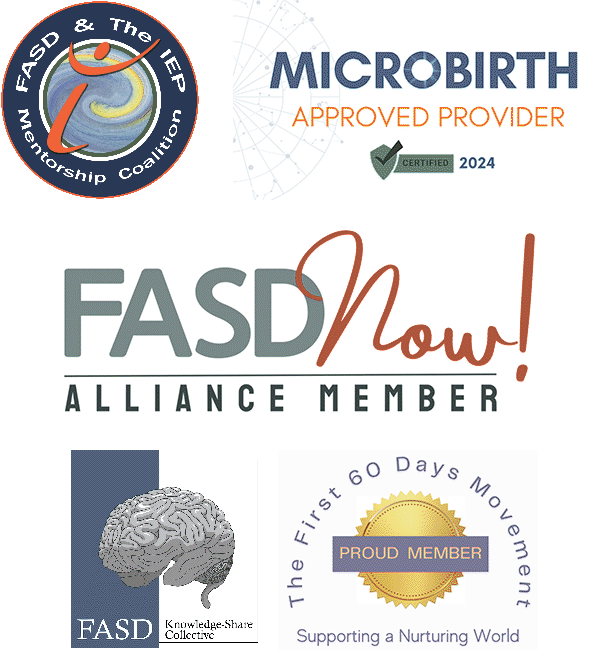The History of AB3632 and Educationally Related Mental Health Services in CA(1)
 In 1975, congress passed what is now commonly referred to as IDEA (Individuals with Disabilities Education Act)(2). This act ensured that every child – no matter of ability or disability – is entitled to a free appropriate public education. In 1984, in response to major concerns that mental health services were not being adequately provided to students who needed such services in order to benefit from their education, California passed Assembly Bill 3632, which required counties to provide these services. From 1984 through 2010(3), the county departments of mental health were in charge of completing mental health assessments, recommendations, and case management for students. These services were coordinated with the students’ individualized education program (IEP).
In 1975, congress passed what is now commonly referred to as IDEA (Individuals with Disabilities Education Act)(2). This act ensured that every child – no matter of ability or disability – is entitled to a free appropriate public education. In 1984, in response to major concerns that mental health services were not being adequately provided to students who needed such services in order to benefit from their education, California passed Assembly Bill 3632, which required counties to provide these services. From 1984 through 2010(3), the county departments of mental health were in charge of completing mental health assessments, recommendations, and case management for students. These services were coordinated with the students’ individualized education program (IEP).
Currently, schools (under IDEA) are required to provide any related services the IEP team deems necessary to support the student’s ability to benefit from his/her education..
In October, 2010, AB3632 was brought to an abrupt halt when it was defunded. Over the next year, there were attempts to transition these services back from the county mental health departments to the schools(4,5).
Currently, schools (under IDEA) are required to provide any related services the IEP team deems necessary to support the student’s ability to benefit from his/her education. These related services can include a variety of mental health services, including, but not limited to, individual, group, or family counseling, or therapeutic residential placement.(6,7) Because these services have been provided by a separate entity for the past 25 years, many schools are still adjusting to the transition and working out implementation plans for their individual districts or planning areas.
In 1975, congress passed what is now commonly referred to as IDEA (Individuals with Disabilities Education Act)(2). This act ensured that every child – no matter of ability or disability – is entitled to a free appropriate public education. In 1984, in response to major concerns that mental health services were not being adequately provided to students who needed such services in order to benefit from their education, California passed Assembly Bill 3632, which required counties to provide these services. From 1984 through 2010(3), the county departments of mental health were in charge of completing mental health assessments, recommendations, and case management for students. These services were coordinated with the students’ individualized education program (IEP).
In October, 2010, AB3632 was brought to an abrupt halt when it was defunded. Over the next year, there were attempts to transition these services back from the county mental health departments to the schools(4,5).
Currently, schools (under IDEA) are required to provide any related services the IEP team deems necessary to support the student’s ability to benefit from his/her education. These related services can include a variety of mental health services, including, but not limited to, individual, group, or family counseling, or therapeutic residential placement.(6,7) Because these services have been provided by a separate entity for the past 25 years, many schools are still adjusting to the transition and working out implementation plans for their individual districts or planning areas.
- We have provided a very brief and simplified overview of the history of this law. There are many more details and factors that went into the creation of AB3632, how these services were provided and the challenges that ensued during the transition resulting from the removal of funding. It is not our intention to provide a comprehensive review here, but rather an easy-to-understand overview.
- The law was originally named the Education for All Handicapped Children Act (EAHCA or EHA or Public Law 94-142). In 1990, revisions to the law were made and the name was changed to the Individuals with Disabilities Education Act. In 1997, additional revisions were made to the law. In 2004, more revisions were made and the name was changed to the Individuals with Disabilities Education Improvement Act (IDEIA).
- In 1996, California passed AB2726, which made adjustments to AB3632, including transferring the financial responsibility for residential placements from the school districts to the county departments of mental health.
- While we have used “schools” for ease of understanding to identify who is providing services, the responsibility actually falls on the Local Education Agency (LEA), which is typically the school district.
- In 2011, California passed AB114 which removed funding (and therefore access to services) from the AB3632/AB2726 laws. As a temporary measure to transition services from the county mental health departments to the LEAs, specialized funding was approved for the 2011-12 fiscal year.
- IDEA and California law require that local educational agencies provide students the special education and related services that each child with a disability requires to benefit from their education, including but not limited to:
- assessment of mental health needs, including interpretation of such assessments and integration of information in service planning;
- consultation with the student, family, and staff to develop an appropriate program to serve the youth;
- individual, group, family, and parent counseling;
- individual, group, family, and parent psychotherapy;
- parent counseling to assist parents in understanding their child, provide parents with information about their child’s development, and help parents acquire skills to enable them to support implementation of their child’s IEP;
- day treatment;
- planning, providing, and managing positive behavior intervention, including one-on-one behavioral aides if necessary;
- therapeutic behavioral services;
- identifying and securing community resources;
- assessment for, and administration and management of medications; and
residential placement.
34 C.F.R. §§ 300.34(a), .34(c)(2), .34(c)(8), .34(c)(10), .34(c)(14), .104; Cal. Educ. §§ 56363(a), (b)(9), (b)(10), (b)(11), (b)(13); 2 C.C.R. §60020(i). This list is illustrative, not exhaustive. Cal. Educ. § 56363(b); See also 34 C.F.R. § 300.34.
For more information, see the California Department of Education’s Mental Health Services FAQ at http://www.cde.ca.gov/sp/se/ac/mhsfaq.asp
 Kelly Rain Collin, Ed.M. is an Educational Consultant and Advocate who specializes in uniting the fields of education and mental health to foster students’ self-esteem and academic success. She is the Founder and Director of Healthy Minds Consulting and provides trainings and consultation to schools, parents, attorneys, advocates, and service providers on IEP goal creation, the unique needs of students with Fetal Alcohol Spectrum Disorders (FASD), how to create IEPs that bolster students’ self-confidence, and other related content.
Kelly Rain Collin, Ed.M. is an Educational Consultant and Advocate who specializes in uniting the fields of education and mental health to foster students’ self-esteem and academic success. She is the Founder and Director of Healthy Minds Consulting and provides trainings and consultation to schools, parents, attorneys, advocates, and service providers on IEP goal creation, the unique needs of students with Fetal Alcohol Spectrum Disorders (FASD), how to create IEPs that bolster students’ self-confidence, and other related content.



